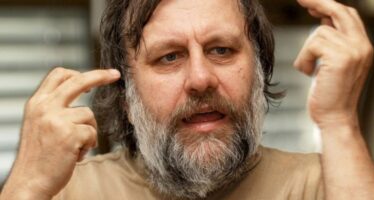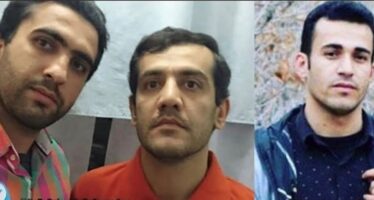Syria might grant conditional amnesty to PKK members
![]()
AY?E KARABAT
Damascus has once more underlined that it is ready to grant amnesty to Syrian members of the outlawed Kurdistan Workers’ Party (PKK), but according to experts, Syria can take this step only if Turkey does so simultaneously and if Turkey’s efforts for a solution are based on a general expansion of democratic rights, as opposed to the specific recognition of the rights of Kurds as an ethnic group.

Turkish Prime Minister Recep Tayyip Erdo?an and Syrian President Bashar al-Assad on Monday coordinated the two countries’ ongoing cooperation against PKK activities and also discussed the government-formation crisis in neighboring Iraq.
After meeting with al-Assad, Erdo?an answered a question regarding the possibility of amnesty for the Syrian members of the PKK, saying this subject is not new and has been on the agenda for a while. “We have to open a gate for everybody who committed a mistake. This door should remain open. The doors of amnesty should not be opened only once and closed later but should be kept open all the time, whether in Turkey, in Iraq or in Iran,” he said.
Erdo?an brought up the fact that some PKK members’ families are in Syria and stated that he believes that if this issue is addressed in cooperation with Syria the problem will be at least minimized. Erdo?an did not elaborate further. It is known that many of the Syrian members of the PKK emigrated from Turkey to Syria during the Kurdish uprisings after the establishment of the Republic of Turkey. Syria has not granted citizenship to most of these individuals, and they are believed to number around 200,000, according to Syrian journalist Husni Mahalli.
Mahalli has stated that most Syrian PKK members come from such immigrant families and that the Syrian government recently prepared a plan to further integrate these families by granting them citizenship and some other rights gradually; however, this plan was not implemented due to unrest a few years ago in Qamishli, a border town mostly populated by Kurds.
“This is a difficult issue to solve. Erdo?an did not elaborate on it but mentioned cooperation. Maybe these people will be told that they might go back to Turkey if they want, maybe they will be granted citizenship,” he said.
Mahalli added that Syria can grant amnesty to Syrian members of the PKK, but only if Turkey does so as well, and added that another condition is that any solution should not open the gate for any movements that might harm the territorial integrity of Turkey. “For the solution of the Kurdish problem in the region, the situation in Turkey has a determining effect. Any step in Turkey will affect the future of Syria, too. If there is a move that may lead to autonomy or something similar to that, it will not be accepted by Syria since it will obliged to do the same,” he told Today’s Zaman.
?brahim Güçlü, a prominent Kurdish intellectual, explained that the most radical elements within the PKK actually come from Syria and that it is this group that defends the idea of terrorist attacks. “The Syrian members of the PKK think that Turkish members are ready to compromise, but they are against it. Any possible amnesty might change the whole situation on the ground and also the Kurdish movement itself, but Syria will obviously not say yes to any solution that includes recognition of Kurd’s rights. If this happens, it will feel threatened,” Güçlü told Today’s Zaman.
In a July interview with Today’s Zaman, Assad said he backed the PKK’s possible decision to lay down its arms so that it could transform itself into a political actor and added that any campaign against terrorism should include political and social measures along with military ones. “If the PKK lays down its arms and becomes a political party, this would be a positive development. As long as there are no weapons and no terrorism, countries in the region, including Turkey, can have dialogue with the PKK. If it lays down its arms, we can also welcome back 1,500 Syrian nationals within the PKK,” Assad had said at the time.
Related Articles
Žižek: “if Europe betrays Kurds, it will betray itself”
![]()
Slovenian philosopher Slavoj Žižek wrote on The Independent that “if Europe will turn its eyes away from Kurds, it will
A Letter by the Cellmates of Executed Kurds
![]()
In the early hours of September 8, three Kurdish prisoners — Zanyar Moradi, Loghman Moradi and Ramin Hossein Panahi — were executed without prior notice, ignoring international pleas to spare their lives
Turkish government should take fresh steps for PKK withdrawal, BDP says
![]()
ANKARA – Hürriyet Daily News BDP co-chair Demirta? says the government should take new steps for the PKK withrawal, saying




